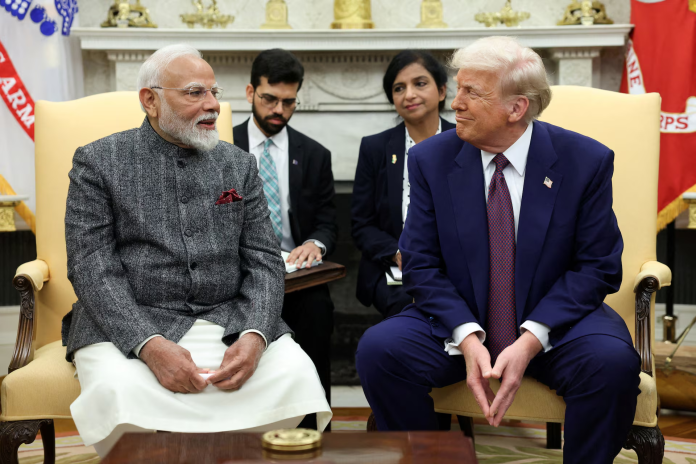India suspended negotiations for major US defence acquisitions, including Boeing surveillance aircraft, Stryker combat vehicles, and Javelin missiles, in a decisive response to US President Donald Trump’s imposition of 50% tariffs on Indian exports, according to Reuters.
The retaliatory freeze, confirmed by three senior government officials, includes the cancellation of Defence Minister Rajnath Singh’s forthcoming Washington visit, where announcements on the deals were planned, marking the most significant rupture in US-India relations in decades.
Trump’s abrupt 25% tariff hike on 6 August, punishing India for purchasing Russian oil, escalated existing duties to 50%, among the highest rates applied to any US trading partner. The White House claimed India was allegedly helping Russia in its war against Ukraine.
However, New Delhi countered that Washington and European allies “continue trading with Moscow when it suits their interests.”
The suspended procurements include: six Boeing P-8I Poseidon maritime patrol aircraft, whose cost surged 50% from 2021 due to supply-chain disruptions and tariffs; Stryker armoured vehicles and Javelin anti-tank missiles, part of a February agreement for joint US-India production announced by Trump and Indian Prime Minister Narendra Modi.
A defence official clarified the freeze is reversible but emphasised “no forward movement at least for now,” adding purchases could resume with “clarity on tariffs and bilateral ties,” though “not as soon as expected.”
“India remains open to scaling back Russian oil imports if the US offers comparable pricing,” two officials noted, signalling potential flexibility if Washington recalibrates its approach.
The tariff dispute catalysed a wider review of India’s defence partnerships, accelerating the “Make in India” initiative for military self-reliance. While Russia recently pitched advanced systems like the S-500 missile platform, officials confirmed no new Russian arms purchases are planned.
Industry analysts warn the suspension could jeopardise Boeing’s Indian ecosystem, which employs 5,000 people and contributes $1.7 billion annually to the economy. However, maintenance for existing P-8I fleets at Tamil Nadu facilities continues uninterrupted.
